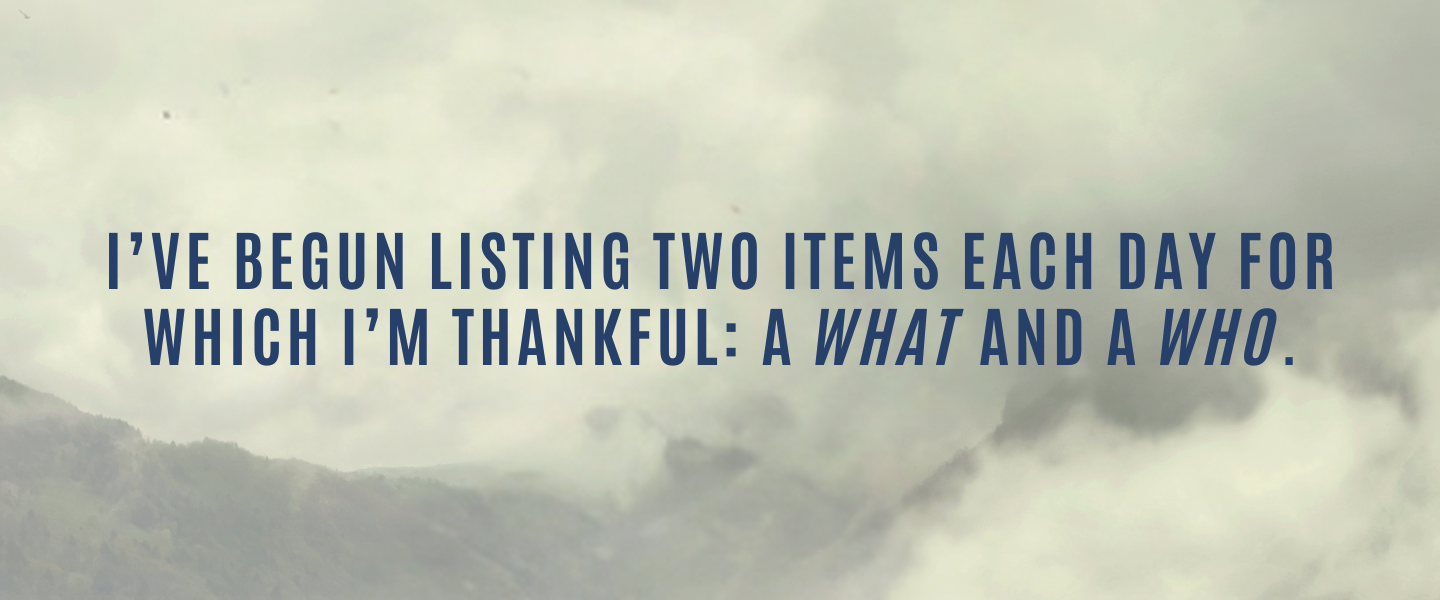Remember: God’s Still Working on YouНамуна


Thankfulness Focuses Us
Dr. James Moore was a noted Methodist pastor in Houston. While traveling on a speaking engagement, he had occasion to eat supper with a young family. As they bowed their heads to bless the meal, the smallest boy launched in and began to thank God for every dish on the table by name, the roast, the mashed potatoes, the corn, the rolls, and so on. Then he gave thanks for all of the people present by name, and even the family dog. Finally, he moved on to all of the items in the home for which they should be grateful, specifically expressing gratitude for the table, the chairs, the silverware, the plates, and glasses, and on and on it went.
His siblings began to giggle. But when it was over, Dr. Moore admitted he was strangely moved. This four-year-old had reminded him of how important counting our blessings, all of our blessings, can be. How much God has given us, and how little of it we thank Him for.
Several years ago, I read about a missionary who kept a thanksgiving list alongside her prayer list. Every day she jotted down something for which she was thankful. I decided to do the same, and every morning I added something new to the list. It might be something as simple as a hot shower or a good lab result from the doctor.
But in studying Philippians 1:3, I became convicted. I tend to thank God for things. Paul thanked God for people. There’s no doubt he was grateful for all his blessings, but most of his expressions of thanksgiving involved individuals. Since realizing this, I’ve begun listing two items each day for which I’m thankful: a what and a who.
Paul expressed deep gratitude for the people of the church at Philippi, not only because they had gifted him with uncommon support, but because “all of you share in God’s grace with me.” This kind of gratitude for others doesn’t come naturally, but when we work at it, we recognize our membership in the human family and reflect more of Christ’s selfless love.
Action
Spend a week making thankfulness the center of your prayers and contemplations about God. How does a grateful posture influence your feelings about your flaws and your hope of Christ perfecting Himself in you?
About this Plan

In his letter to the church at Philippi, the apostle Paul expressed effusive gratitude for their support during his imprisonment. His prayers for the Philippians—and for himself—were characterized by thanksgiving, cheerfulness, and confidence in Christ’s faithfulness. In this five-day look at the first verses of that letter, Pastor Robert J. Morgan shows us how we can become more like Christ through adopting a similar attitude.
More









